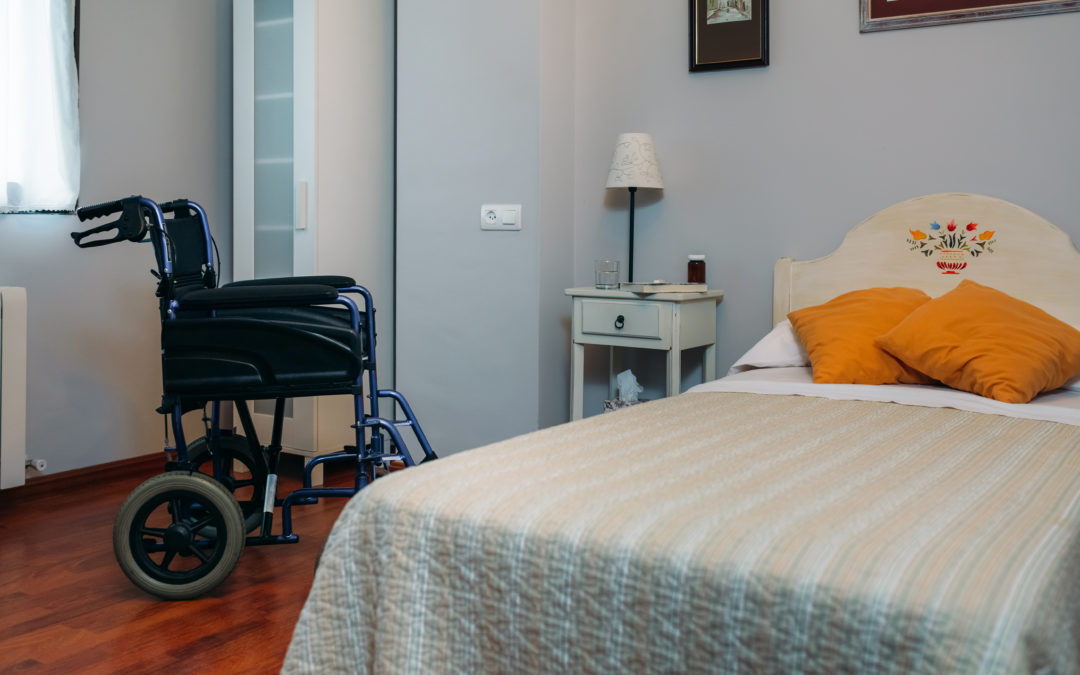Private Rooms Improve Nursing Home Safety: Recent studies indicate that nursing home safety issues like nursing home infections and medication errors can be reduced by providing residents with private rooms.
Providing nursing home residents with single-occupancy rooms is a critical step toward improving nursing home care and preventing nursing home neglect, says the National Academies of Sciences, Engineering, and Medicine (NASEM). In its new report that aims to improve the quality of nursing home safety with a comprehensive approach, NASEM believes beginning with private rooms is key.
As indicated in the White House’s February 28 fact sheet proposing sweeping changes in the industry, the Biden Administration agrees. The lessening of room crowding afforded by single-occupancy rooms would not only help preserve residents’ privacy and dignity, but also would reduce their risk of contracting nursing home infections like COVID-19. Since the outbreak of the coronavirus pandemic, nursing home residents and staff have accounted for nearly a quarter of all U.S. COVID-19 deaths. The Centers for Medicare & Medicaid Services (CMS) CMS have pledged to investigate solutions toward phasing out multiple-occupancy rooms.
While the conversion to private rooms will require reconstruction investments and an increase in operation costs, various studies cited by a Skilled Nursing News article indicate that making such investments would boost the physical, mental, and psycho-social wellbeing of residents, which ought to be the aim of any facility hoping to avoid nursing home neglect. Private rooms improve nursing home safety and thereby outweigh the costs.
The article echoes the White House’s argument that switching to single-occupancy rooms would greatly reduce the transmission of nursing home infections. According to a study by the Michigan-based consulting firm Health Management Associates, 31% of coronavirus deaths in Ontario’s long-term care facilities could have been prevented, had all residents been safely isolated in single rooms. A related study conducted in Australia found that single rooms protected residents during the pandemic by reducing nursing home infection risk. Beyond the coronavirus, other clinical studies referenced by the article indicate that, compared with multiple-occupancy rooms, single-resident rooms reduce the transmission of other, nococomial (facility-acquired) nursing home infections.
Other evidence suggests an additional safety boon to single rooms: the decreased risk of medication errors. Nursing home medication errors often occur as the result of over-busy nurses in understaffed facilities. The reduced risk of mixing up patients offered by single-occupancy rooms helps to lower the chances of medication errors; this preservation of resident safety thereby contributes to a reduction of nursing home neglect.
In addition to the ways they increase safety within nursing homes, single-occupancy rooms are also linked to such mental and emotional benefits for residents as reduced anxiety, lower stress, better sleep, and fewer incidents of aggressive behavior.
Demanding High Quality Care for Your Loved One
Determining the quality and safety of the Philadelphia/PA or NJ nursing home where your loved one lives is essential. Meeting health and safety standards and to ensuring the physical, mental, and psycho/social well-being of their residents is a requirement to which Pennsylvania and New Jersey nursing homes must adhere. Should you have concerns about the quality of care in a Pennsylvania or New Jersey nursing home, or if you suspect neglect, abuse, or fraud has occurred at the Pennsylvania, Philadelphia, or New Jersey nursing home where your loved one lives, please contact nursing home abuse attorney Brian P. Murphy to discover your legal rights and options.







